History
The birth of the NBDB was a long struggle that started in the halls of Congress by legislators for ten (10) years or more who shared a vision and desire to see the growth of the book publishing industry of the Philippines through democratization of the supply of educational materials to public schools and non-imposition of tariffs and taxes. The first hearing commenced on July 25, 1994, and ended on June 2, 1995, when his excellency, former president Fidel V. Ramos signed into law the Republic Act No. 8047 or also known as the “Book Publishing Industry Development Act” which is a consolidation of Senate Bill No. 252 authored by Senator Edgardo J. Angara and House Bill No. 12614. The Republic Act 8047 was an amendment and repeal to the Executive Order 492 series of 1991 which formed the Instructional Materials Development Center under the Department of Education, Culture and Sports (DECS). The National Book Development Board which was referred to as the “Board” was created through the enactment of Republic Act No. 8047 under the administrative supervision of the Office of the President. Its first chairman was Atty. Dominador D. Buhain.
Its first office was then located at A. Ma. Regidor Street, Area XI, University of the Philippines, Diliman, Quezon City from 1995 to 2007. After a few months, it was transferred to 2nd Floor, National Printing Office, EDSA corner NIA Northside Road, Diliman, Quezon City from 2007 until 2012. NBDB then moved at Unit 2401, Prestige Tower, F. Ortigas Jr. Road (formerly Emerald Avenue), Ortigas Center, Pasig from 2013 to March 2019. Then it had a short stay at 4th Floor Dorm E, Department of Education Complex, Pasig from April 2019 to December 2019. Starting January 2020, NBDB's new office is currently located at 3rd and 4th Floors, Regalado Hive Building, Regalado Avenue, Fairview, Quezon City.
Organizational structure
The National Book Development Board was composed of: The Governing Board and the Secretariat.
Governing board
The governing board assumes responsibility for carrying out and implementing the policies, purposes and objectives provided in the Republic Act No. 8047. It was composed of eleven (11) members. Five (5) representatives were chosen from the Department of Education, Culture and Sports (DECS), Department of Trade and Industry (DTI), Department of Science and Technology (DOST), National Commission for Culture and the Arts (NCCA), and nominees by the Commission on Higher Education (CHED) and Technical Education Skills Development Authority (TESDA) from the academe and training institutions; and, six (6) representatives from the nominees of organizations of private book publishers, printers, writers, book industry related activities, students and the private education sector, preferably representatives of the three main islands of the country in view of the substantial progress made by other regions in the book publishing industry. The appointees to the board shall be one of the three (3) nominees of the concerned nationwide organizations duly incorporated with the Securities and Exchange Commission (SEC) and with membership, whenever feasible, in all the cities and provinces throughout the country. The members of the board shall elect a chair from among themselves. The DECS representative in the board shall be the ex-officio vice chair of the board. Its current chair is Dante Francis Ang II.
History of Governing board members (representing Private sector)as of October 15, 2020| Arroyo Administration | Aquino Administration | Duterte Administration |
|---|
| Dennis T. Gonzalez | Flor Marie Sta. Romana-Cruz | Dante Francis M. Ang II |
| Christina P. Hidalgo | Karina Bolasco | Maureen Alexandra S. Ramos-Padilla |
| Queena Lee-Chua | Dr. Isagani Cruz | Teresita Q. Adriano |
| Alegria Sibal-Limjoco | Ruel S. De Vera | Resignation effective June 30, 2020 |
| Alfredo C. Ramos | Mary Ann Arcedo Ordinario |
| Roland Robles | Ani Rosa S. Almario | Jose Mirasol De Mesa |
Secretariat
The National Book Development Board have a permanent secretariat under an executive officer, who shall be appointed by the board. The executive officer have the authority and responsibility for the day-to-day management and direction of the operations and affairs of the board. The secretariat executes, administer and implement the policies and measures approved by the board. The structural and functional organization, compensation plan, and the staffing pattern of the secretariat shall be approved by the board upon the recommendation of the executive officer. The board may create, abolish, merge, or otherwise reorganize positions therein as may be necessary for the economical, effective and efficient discharge of its functions and responsibilities subject to existing laws.
Trainings, reading campaigns and book fairs
NBDB promotes reading and writing literacy for all ages by conducting several local and international trainings, reading campaigns and book fairs such as: Booklatan sa Bayan, Training the Trainers for the module “Writing Stories for Children”, Children's Book Summit, Philippine International Literary Festival, Rights Management, Book Industry Summit, Read Aloud, Read Pinoy Video Campaign, Book Fiesta, Booklatan Book Fair, and the Manila International Book Fair (MIBF). It is also an active partner and participant of the World Book and Copyright Day, Kuala Lumpur Trade & Copyright Centre (KLTCC) Fair in Malaysia, Frankfurt Book Fair (FBF) in Germany, London Book Fair (LBF) in United Kingdom, and the 85th PEN International Congress.
It also has its own studies and publications such as the: Readership Survey, The Philippine Book Publishing Industry in Figures, Bookwatch, and Copyright Watch.

The Commonwealth of the Philippines was an unincorporated territory and commonwealth of the United States that existed from 1935 to 1946. It was established following the Tydings–McDuffie Act to replace the Insular Government of the Philippine Islands and was designed as a transitional administration in preparation for full Philippine independence. Its foreign affairs remained managed by the United States.
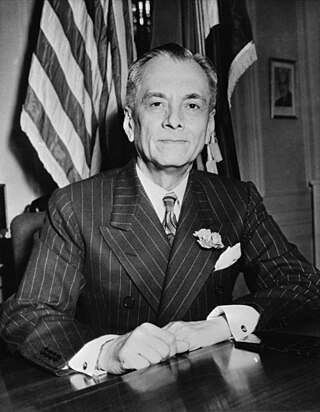
Manuel Luis Quezon y Molina, also known by his initials MLQ, was a Filipino lawyer, statesman, soldier, and politician who was president of the Commonwealth of the Philippines from 1935 until his death in 1944. He was the first Filipino to head a government of the entire Philippines and is considered the second president of the Philippines after Emilio Aguinaldo (1899–1901), whom Quezon defeated in the 1935 presidential election.

Filipino is a language under the Austronesian language family. It is the national language of the Philippines, lingua franca, and one of the two official languages of the country, with English. It is a standardized variety of Tagalog based on the native language, spoken and written in Metro Manila, the National Capital Region, and in other urban centers of the archipelago. The 1987 Constitution mandates that Filipino be further enriched and developed by the other languages of the Philippines.

The president of the Philippines is the head of state, head of government and chief executive of the Philippines. The president leads the executive branch of the Philippine government and is the commander-in-chief of the Armed Forces of the Philippines.

Public holidays in the Philippines are of two types: regular holidays and special non-working days.

Camp General Emilio Aguinaldo (CGEA), also known as Camp Aguinaldo, is the site of the general headquarters (GHQ) of the Armed Forces of the Philippines (AFP).
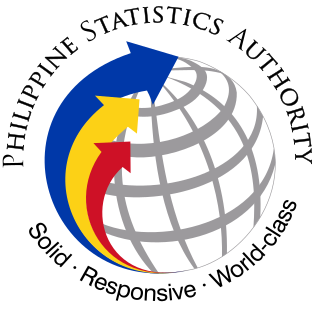
The Philippine Statistics Authority is the central statistical authority of the Philippine government that collects, compiles, analyzes, and publishes statistical information on economic, social, demographic, political affairs, and general affairs of the people of the Philippines, as well as enforcing the civil registration functions in the country.
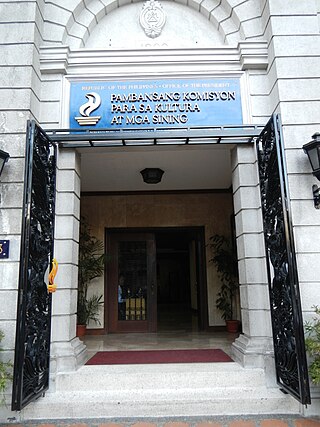
The National Commission for Culture and the Arts of the Philippines is the official government agency for culture in the Philippines. It is the overall policy making body, coordinating, and grants giving agency for the preservation, development and promotion of Philippine arts and culture; an executing agency for the policies it formulates; and task to administering the National Endowment Fund for Culture and the Arts (NEFCA) – fund exclusively for the implementation of culture and arts programs and projects.
A national hero of the Philippines is a Filipino who has been recognized as a national hero for their role in the history of the Philippines. Loosely, the term may refer to all historical figures recognized as heroes, but the term more strictly refers to those officially designated as such. In 1995 the Philippine National Heroes Committee officially recommended several people for the designation, but this was not acted upon. As of 2023, no one had ever been officially recognized as a Philippine national hero.

The National Economic and Development Authority is an independent cabinet-level agency of the Philippine government responsible for economic development and planning. It is headed by the president of the Philippines as chairman of the NEDA board, with the Secretary of Socioeconomic Planning as vice-chairman. A number of Cabinet members, the Governor of the Bangko Sentral ng Pilipinas, the Chairperson of the Metropolitan Manila Development Authority, the Chief Minister of Bangsamoro, the Secretary of Information and Communications Technology, the Chairman of the Subic–Clark Area Development Corporation, and the National President of the Union of Local Authorities of the Philippines are members of the NEDA Board.

The Second Philippine Republic, officially the Republic of the Philippines and also known as the Japanese-sponsored Philippine Republic, was a Japanese-backed government established on October 14, 1943, during the Japanese occupation of the islands.

The Technical Education and Skills Development Authority serves as the Philippines' Technical Vocational Education and Training (TVET) authority. As a government agency, TESDA is tasked to both manage and supervise the Philippines' Technical Education and Skills Development (TESD). Its goals are to develop the Filipino workforce with "world-class competence and positive work values" and to provide quality technical-educational and skills development through its direction, policies, and programs.

Science and technology in the Philippines describes scientific and technological progress made by the Philippines and analyses related policy issues. The main agency responsible for managing science and technology (S&T) is the Department of Science and Technology (DOST). There are also sectoral councils for Forestry, Agriculture and Aquaculture, the Metal Industry, Nuclear Research, Food and Nutrition, Health, Meteorology, Volcanology and Seismology.
The visa policy of the Philippines is governed by Commonwealth Act No. 613, also known as the Philippine Immigration Act, and by subsequent legislation amending it.

The Philippine Overseas Employment Administration was an agency of the government of the Philippines responsible for opening the benefits of the overseas employment program of the Philippines. It is the main government agency assigned to monitor and supervise overseas recruitment and manning agencies in the Philippines. The POEA's office is located at EDSA corner Ortigas Avenue, Mandaluyong, Philippines.

The Office of the President of the Philippines, is an administrative, advisory, and consultative government agency that aids the president of the Philippines in performing their duty as head of state and chief of the executive branch of government.
Vibal Publishing House, Inc. is a major publishing house in the Philippines based in Quezon City. Vibal was founded in 1953 by Hilarion P. Vibal and by his wife, Esther Asuncion-Vibal. Vibal is a textbook, reference materials, and multimedia products publisher and is the biggest in the country. In 2011, in partnership with Procter & Gamble, Vibal introduces digital classrooms and low-cost digital education tablets, for the digitization of education in the country.
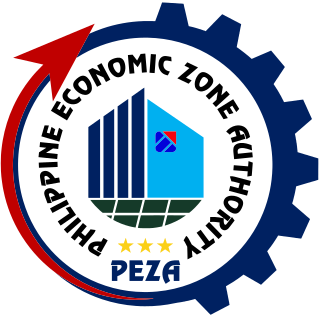
The Philippine Economic Zone Authority (PEZA), formerly known as the Foreign Trade Zone Authority (FTZA) and Export Processing Zone Authority (EPZA), is a Philippine government agency attached to the Department of Trade and Industry.

The Cabinet Secretariat, formerly the Office of the Cabinet Secretary, was a member agency of the Cabinet of the Philippines which provided support to the President, facilitated the exchange of information, as well as discussed and resolved issues among Cabinet members. The Cabinet Secretary also acted as a coordinator and integrator of the initiatives of the President. The Cabinet Secretariat was created through Executive Order No. 237, s. 1987.
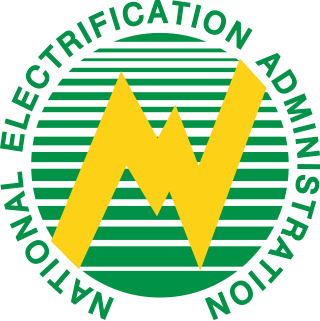
The National Electrification Administration is a government-owned and controlled corporation (GOCC) attached to the Department of Energy of the Philippines tasked in the full implementation of the rural electrification program (REP) and reinforce the technical capability and financial viability of the 121 rural electric cooperatives (ECs).


















